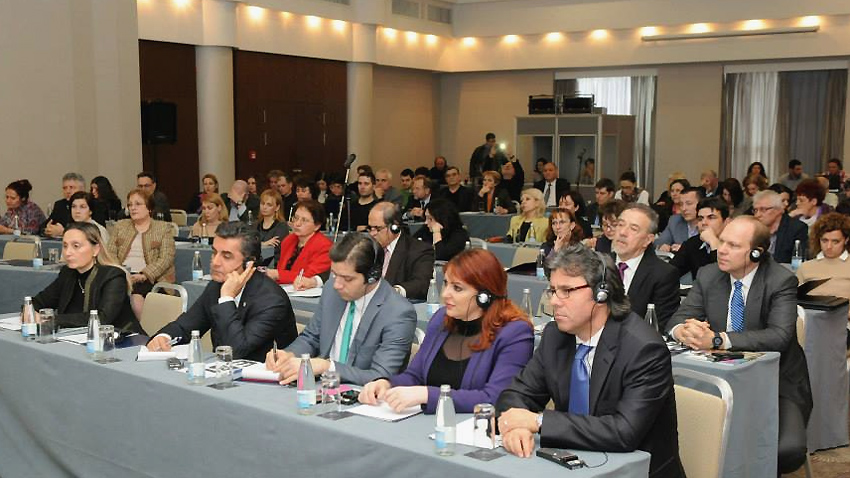Radio is a very important media in the Asian-Pacific region as it plays a very important role in disseminating information, informing, entertaining and educating the public, says Djavad Mottaghi, Secretary General of the Asia-Pacific Broadcasting Union (ABU), who was a special guest of the BNR on the celebrations of its 80th anniversary. Based in Kuala Lumpur, Malaysia, this is the biggest non-professional, non-profit union of public broadcasters around the world, bringing together more than 271 media from 65 countries, reaching an audience of 4.2 billion people.
“Bulgaria has a lot to offer and the ABU can facilitate this partnership. If you want to talk to three quarter of the population of the world”, Djavad Mottaghi said in a  special interview for Radio Bulgaria on his visit to the BNR’s headquarters. “I can see a lot of cultural commonalities between your people and people in our region. We believe diversity is not a threat when you focus on commonalities and when you analyze the differences but we at the ABU have a mandate to focus on commonalities.”
special interview for Radio Bulgaria on his visit to the BNR’s headquarters. “I can see a lot of cultural commonalities between your people and people in our region. We believe diversity is not a threat when you focus on commonalities and when you analyze the differences but we at the ABU have a mandate to focus on commonalities.”
D-r Mottaghi sees a bright future for the radio medium, which is expanding in its usage of all available modern technologies in an effort to reach an increasing number of people:
"In each country in Europe and Asia broadcasters are facing challenges and at the same time they need to exchange their experience the challenges into opportunities, learn from each other, and find a way forward. We have to accept that the audiences have access to a lot of platforms. We have to accept that it is the audiences who decide what and when to listen. The challenge for broadcasters is first to reach the audience by using all possible platforms. But the challenge which is more important is to deliver content that fulfills their wishes. Content is still key and will continue to be key. The audience needs to want to listen to the message. Public broadcasters have to understand that target groups in the audience are different and you have to study that and reach them by the right instrument. I do believe that radio is and will continue to be the most powerful media in the world.”
You can hear the full interview in the audio file.
Three days in mid-July are given special attention in the Bulgarian calendar. 15, 16 and 17 July are known as the Dog Days or Goreshtnitsi (from goreshto, meaning 'hot') and are considered to be the hottest time of the year in Bulgaria. During this..
Summer in Bulgaria is an exciting time, not only for tourists. June and July are intense months for young people finishing secondary school and about to take the next step in their lives by choosing a university and a career path. In recent years,..
Colourful, ethereal, and subtle, butterflies are everywhere around us – day and night, in the city and in the countryside. However, zoologists warn that their butterfly dance has become increasingly rare in recent years in European countries , including..
Three days in mid-July are given special attention in the Bulgarian calendar. 15, 16 and 17 July are known as the Dog Days or Goreshtnitsi (from..

+359 2 9336 661
